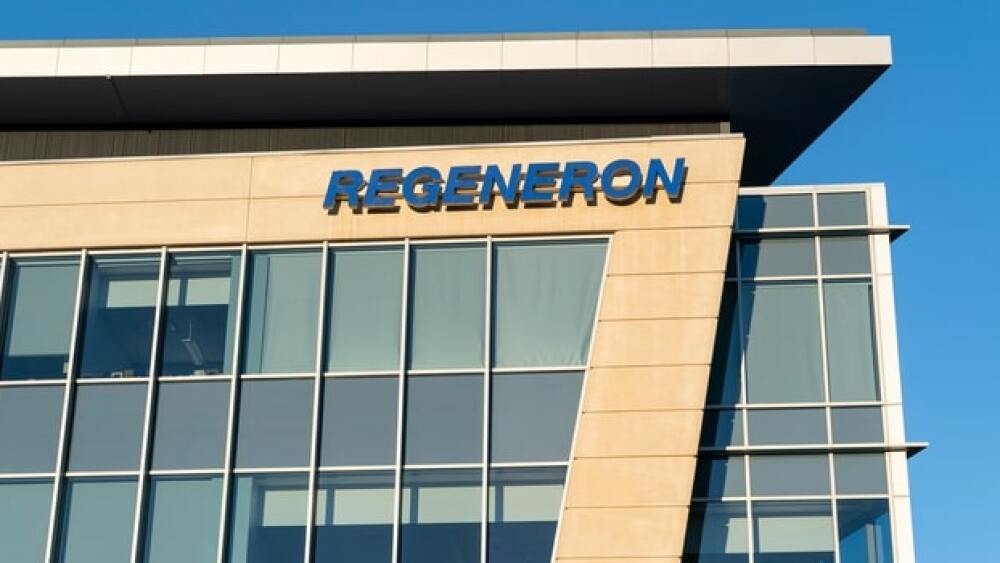Sanofi and Regeneron Pharmaceuticals’ checkpoint inhibitor Libtayo performed so well that the regulators anticipate that the trials may need to be halt early.
Libtayo is all ready to undergo regulators scrutiny. (lev radin / Shutterstock)
Sanofi and Regeneron Pharmaceuticals’ checkpoint inhibitor Libtayo (cemiplimab) performed so well in the companies’ Phase III clinical trial in cervical cancer that the Independent Data Monitoring Committee (IDMC) recommended the trial be halted early. They plan to use the data for regulatory submissions this year.
The study evaluated Libtayo, a PD-1 inhibitor, alone compared to chemotherapy in patients previously treated with chemotherapy whose cervical cancer is recurrent or metastatic. It was the largest Phase III trial in advanced cervical cancer. The median age of the women in the study was 51 years, and they had either squamous cell carcinoma or adenocarcinoma. Patients received either Libtayo or an investigator’s choice of commonly used chemotherapy, pemetrexed, vinorelbine, topotecan, irinotecan or gemcitabine.
Compared to patients receiving chemotherapy, the Libtayo patients demonstrated a 31% reduced risk of death, and a median 12 months survival compared to 8.5 months for chemotherapy. In the squamous cell carcinoma group, there was a 27% reduced risk of deaths and median 11.1 months survival for Libtayo compared to 8.8 months for chemotherapy; and in adenocarcinoma, a 44% reduced risk of death and a median 13.3 months survival in the Libtayo group compared to 7.0 months for chemotherapy.
“Libtayo monotherapy is the first medicine to demonstrate an improvement in overall survival in women with recurrent or metastatic cervical cancer following progression on platinum-based chemotherapy in a Phase III trial,” said Krishnansu S. Tewari, Professor and Director of the Division of Gynecologic Oncology at the University of California, Irvine, and a trial investigator. “This landmark clinical achievement will bring hope to women with advanced cervical cancer who are often younger than patients with other cancers. This is reflected in the trial where the average age was 51.”
The trial’s primary endpoint was overall survival, which was first analyzed in the squamous cell carcinoma group, then in the total population. The IDMC reviewed OS data when about 85% of events had occurred among the squamous cell carcinoma patients. The effect was so significant, the IDMC recommended halting the trial.
The U.S. Food and Drug Administration (FDA) recently approved Libtayo monotherapy for certain patients with advanced non-small-cell lung cancer (NSCLC) whose tumors have high PD-L1 expression. It was also recently approved for patients with basal cell carcinoma (BCC) previously treated with a hedgehog pathway inhibitor (HHI) or for whom an HHI is not appropriate, whose cancer is either locally advanced (full approval) or metastatic (accelerated approval). It was the first systemic treatment approved in 2018 for certain patients with advanced cutaneous squamous cell carcinoma (CSCC).
Accelerated approval allows for early approval for certain drugs for serious or life-threatening diseases that fill an unmet medical need. They rely on surrogate endpoints and require post-marketing, confirmatory trials. If they do not confirm the effectiveness in the post-market studies, the approval can be withdrawn.
“Recurrent or metastatic cervical cancer is notoriously difficult to treat and has no approved standard of care after first-line chemotherapy,” said Israel Lowy, senior vice president, Translational and Clinical Sciences, Oncology, at Regeneron. “This trial, which enrolled patients regardless of their PD-L1 status, demonstrated that Libtayo helped patients with recurrent or metastatic cervical cancer live longer after progression on prior chemotherapy. This is the fourth patient population in which Libtayo has shown clinical benefit and we look forward to submitting the results to regulatory authorities later this year.”
Regeneron markets Libtayo in the U.S., and Sanofi markets it outside the U.S. In 2020, the companies reported U.S. sales of $270.7 million and $77.5 million in the rest of the world, for a total of $348.2 million.
Featured Jobs on BioSpace





